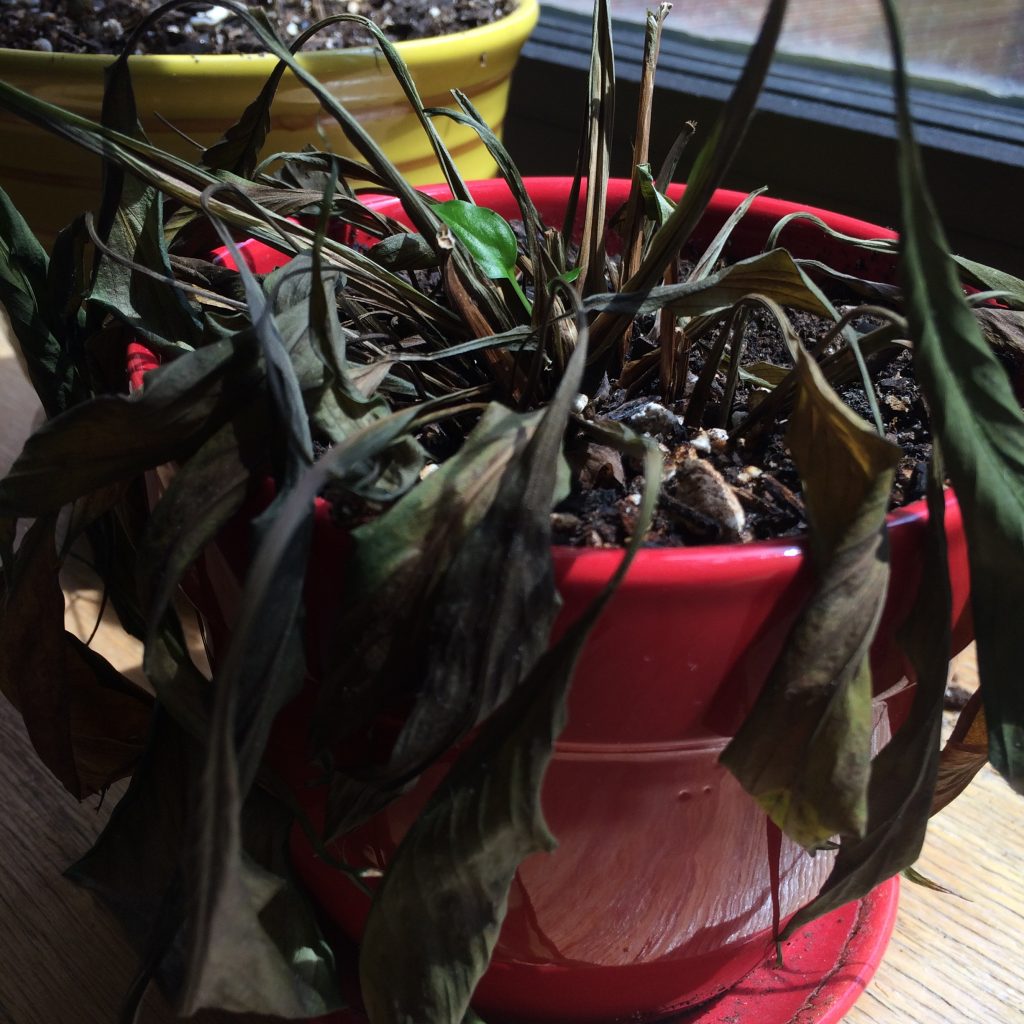by Sarah Brock
Today’s Readings:
AM Psalm 41, 52 PM Psalm 44
1 Samuel 24:1-22; Acts 13:44-52;
My great grandmother had a very green thumb. It was to her that family brought sad, struggling, barely alive plants to for help and the plants would be returned vibrant, lush, and full of life. I most certainly did not inherit her gift for nurturing plants. I’ve lost track of the number of Lucky Bamboo I’ve destroyed and the number of times I’ve replaced the herbs ‘growing’ in pots in the living room. Did you know that plants can get sunburned? I learned this recently from the Peace Lily I had in my office window when I arrived one morning to find its crispy, brown leaves drooping over the rim of its pot.
It’s with my lack of gardening skills in mind that I struggle every time this parable of the sower invites me to reflect on what type of soil I might be. I can’t manage to keep weeds alive, how could I possibly ever be the right kind of soil for these seeds?
But, this may not be the only way to hear this parable. Maybe we are not only the soil, but also the seeds themselves. Jesus describes the seeds as the word sown by God, the sower. Yet, are we not only the soil, but also the word when we share our lives and our faith with those we encounter? Today, I invite you to consider what type of plant you are becoming and what type of soil in which you find yourself sown.
You may be a plant that’s enjoyed years, or maybe decades, of nourishing spiritual growth with roots that sink deep into your community. Or you may be a new sprout, just beginning to push your way up into the sun as a few stubby roots stretch out into the surrounding dirt.
Regardless of how tall or strong you’ve grown, you may find yourself extending your leaves out to receive the nourishing light of God. Perhaps you are sharing your nectar, pollen, or fruit with those who rely on you for sustenance.
But as the parable tells us and as many of us have learned in life, we don’t always find ourselves in good, nutrient rich, life sustaining soil. You may find your roots struggling to grow into the cracks or around the edges of rocks, clinging to whatever you can find for security. You may find yourself sunburned like my Peace Lily. You may find that you’ve been gobbled up off the path by a hungry bird, digested, and left behind in a less than inviting environment. You may find yourself struggling to thrive among the constant threat of thorns all around.
It’s when the soil we are planted in becomes less ideal that we discover the importance of healthy roots. Theological and spiritual roots that can help to sustain us through a crisis. Roots that have become part of a network with other nearby plants. That with the help of a loving, attentive sower can bring new life and new growth out of less than ideal circumstances.
At the advice of a green-thumbed friend, I continued to water my badly sunburnt Peace Lily. Insisting, as if it was a peasant in The Princess Bride, it’s not dead. For weeks it seemed hopeless, a case of wishful thinking. And then, just as I was beginning to wonder if my nurturing was in vain, a tiny green shoot poked its way up in the midst of the dry dead leaves.
The soil can change. Circumstances can change. But, healthy roots offer strength and resilience that we may not even know we have. New shoots can poke through even when they are least expected.
Sarah Brock is a Postulant for Holy Orders in the Diocese of Massachusetts and lives in Boston.
Image Credit: My own.

